What is the Metaverse?
The term Metaverse might sound like a concept straight out of a science fiction novel, yet it’s quickly becoming a reality. At its core, the Metaverse is a collective virtual shared space, created by the convergence of virtually enhanced physical reality and physically persistent virtual space, including the sum of all virtual worlds, augmented reality, and the internet. This digital space allows users to interact, work, and learn in a fully immersive environment.
The Impact of the Metaverse on Learning
Breaking the Traditional Learning Mold
In traditional educational settings, learning is often confined within physical boundaries. The Metaverse shatters these confines, offering an expansive digital classroom that transcends geographical limits and time zones. Learners can engage in interactive simulations, attend virtual classes, and collaborate on projects with peers from around the globe—fostering a diverse educational experience.
Catering to Different Learning Styles
Each person has a unique way of learning, and the Metaverse caters to visual, auditory, and kinesthetic learners alike. Through dynamic, 3D experiences and interactive modules, lifelong learners can absorb information in ways that align with their personal learning styles, resulting in enhanced comprehension and retention of knowledge.
Skills Development in the Metaverse
As digital landscapes evolve, so too must our skillsets. The Metaverse opens up new avenues for learning cutting-edge skills valuable in today’s tech-centric job market. From coding virtual environments to understanding blockchain, these skills can be honed within the Metaverse, offering a practical and engaging learning path. Key areas of development include:
- Digital literacy: Navigating complex digital environments becomes second nature.
- Technical skills: Mastering software development, 3D modeling, and more.
- Soft skills: Enhancing communication and teamwork through virtual collaboration.
The Future of Lifelong Learning in the Metaverse
As the Metaverse evolves, it holds the potential to revolutionize lifelong learning. Institutions are beginning to explore its possibilities, from virtual campuses to degrees earned entirely within its realm. The flexibility and boundlessness of the Metaverse empower self-directed learning and boost motivation by offering an engaging and customizable education. As technology continues to advance, the Metaverse will likely shape not just how we learn, but also how we think about learning itself.
Leveraging Virtual Worlds for Enhanced Educational Experiences
The integration of virtual worlds into the educational landscape opens a realm of opportunities for enhancing learning experiences. These simulated environments offer immersive, interactive settings where learners can explore complex concepts in a visual and tactile manner. By creating scenarios and simulations that mimic real-life situations, virtual worlds facilitate a higher degree of engagement, retention, and understanding among students across various disciplines.
Interactive Simulations for Practical Learning
One of the primary advantages of virtual worlds in education is the ability to create detailed simulations. In fields such as medical training, engineering, and environmental science, virtual simulations provide a risk-free platform for students to hone their skills. For instance, medical students can practice surgical procedures, allowing for repeated practice without the ethical and practical constraints of real-life operations. Similarly, engineering students can construct and test virtual models of their designs, promoting experiential learning and creativity.
Encouraging Collaboration and Social Learning
The use of virtual worlds naturally lends itself to fostering collaboration among learners. As they navigate shared spaces, students can work together on projects and problem-solving tasks, irrespective of their physical locations. This social aspect of the virtual classroom is beneficial for developing teamwork and communication skills, which are critical components of many professional environments.
- Role-play activities: Role-playing scenarios enable students to immerse themselves in various professional roles, encouraging empathy and a deeper understanding of different perspectives.
- International interaction: Virtual classrooms can connect students from around the world, promoting cultural exchange and global awareness.
- Peer feedback: The online platform offers an efficient way for peers to give and receive feedback instantly, fostering a supportive learning community.
Personalized Learning Paths
Virtual worlds also support personalized educational experiences. With adaptive learning technologies, these environments can adjust to individual student needs, offering tailored challenges and support. As learners progress at their own pace, they can spend more time on difficult topics and move quickly through concepts they grasp swiftly. This customization increases student motivation, as it directly addresses their personal learning journey, making education more accessible and effective for all.
Enhancing Creativity and Engagement
Lastly, the imaginative aspect of virtual worlds is a significant factor in maintaining student interest and engagement. By gamifying learning experiences with quests, rewards, and interactive storylines, educators can inject a spirit of play into the curriculum. This can lead to a more profound curiosity and a desire to explore, which are vital for fostering a lifelong love of learning not only amongst younger students but also in adult education.
Personalized Learning Journeys in the Metaverse
Unlocking Individual Potential Through Customized Experiences
The concept of a personal learning path is transforming the educational landscape. In the burgeoning realm of the metaverse, individual learners can tailor a journey that aligns perfectly with their interests, learning styles, and career goals. The crux of a personalized learning journey is the flexibility it offers—permitting students to select from a vast array of topics and delve into subjects at their preferred pace. This is revolutionary for engagement and retention, as students feel more connected to their learning when it reflects their personal interests and objectives.
Technologies that drive these journeys include data-driven algorithms and immersive VR experiences, anchoring educational content to the learner’s performance and interests. These systems analyze individual progress, suggesting supplementary resources and adjusting difficulty in real time to ensure comprehension. Such a responsive approach offers an entirely custom educational experience, transcending the one-size-fits-all methodology of traditional classrooms and enabling truly adaptive learning.
Interactivity and Engagement in a Digital Ecosystem
In the metaverse, each learning journey is peppered with interactive experiences that boost both engagement and understanding. Learners can participate in simulations, collaborate with global peers, and attend virtual workshops that feel as real as their physical counterparts. The interactivity intrinsic to the metaverse allows for applied learning, where theory and practice converge. Such hands-on experiences are not only captivating but are also more likely to instill practical skills and competence.
Embracing Diversity Through Adaptive Learning Paths
The personalization available in the metaverse also embraces the diversity of learners, recognizing that each person’s educational needs are unique. These adaptive paths respect different cognitive processes and cultural backgrounds, promising equitable access to quality education. The technology seamlessly integrates support for various languages, learning disabilities, and divergent thinking styles, leveling the educational playing field for all.
Charting the Course for Lifelong Learning
Metaverse education isn’t solely about academic subjects; it extends to lifelong learning and professional development. The technology redefines how we approach learning throughout our lives, with seamless transitions from student to professional and continuous skill enhancement. This approach nurtures a mindset of lifelong learning, where the quest for knowledge is unbounded by time or place.
The pathways aren’t static but evolve with the learner’s aspirations and the world’s changing demands. New career opportunities, emerging industries, and evolving job requirements necessitate an educational platform that can adapt quickly. The metaverse’s educational framework is designed to update content and incorporate new information swiftly, ensuring learners are always at the forefront of their field.
Future-Proofing Education with Collaborative Endeavors
One of the most exciting prospects of personalized learning journeys in the metaverse is the fostering of global collaboration. Learners can partner with peers from around the world on projects, benefiting from a diversity of thought and collaborative learning. This experience closely mirrors the interconnected nature of today’s digital workforce, where projects often span continents.
The metaverse breaks down geographical barriers, creating global classrooms where ideas, cultures, and innovations mingle. Such an environment not only future-proofs education against an ever-globalizing world but also instills invaluable social skills and cultural awareness in its participants. Moreover, it prepares learners to handle complex interpersonal dynamics and teamwork in their future careers.
In closing, the metaverse’s personalized learning journeys represent a significant leap forward in educational technology. Through custom experiences, diverse and equitable learning paths, continuous skill development, and global collaboration, the metaverse is setting a new standard for empowering learners. As this digital revolution unfolds, the landscape of education will continue to expand and evolve, offering unprecedented opportunities for personal and professional growth.
The Social Aspect of Learning in the Metaverse
As we gaze into the future of education, the Metaverse stands out as a burgeoning frontier rich with potential for social learning experiences. This immersive digital realm offers unique opportunities for learners to engage with educational content, educators, and each other in ways that transcend the limitations of traditional classrooms.
Enhancing Interaction Amongst Learners
In the Metaverse, the element of social interaction is magnified, allowing students to collaborate and communicate in a three-dimensional space. Unlike the passive consumption of learning materials, the Metaverse enables a learner-centered approach, fostering discussions and project-based learning as if participants are in the same room. Virtual learning environments are being designed to replicate the nuances of real-life social cues, including gestures and expressions, which adds depth to the learning experience and facilitates stronger interpersonal connections.
Global Learning Communities
The digital landscape of the Metaverse has the power to unite individuals from across the globe, creating dynamic, diverse learning communities. This unique feature breaks down geographical and cultural barriers, allowing students to exchange ideas and perspectives with peers from different backgrounds, enriching their educational experience. Networking in such an expansive and varied environment also enhances cultural competence, an increasingly valuable skill in today’s interconnected world.
Immersive Educational Experiences
By leveraging the immersive nature of the Metaverse, educational content becomes more engaging and memorable. For instance, history classes could transport students back in time, or science lessons could shrink learners to the size of molecules. Such vivid experiences can ignite passion for subjects and cultivate a deep-rooted understanding of complex concepts. The inherent playfulness of the Metaverse also introduces elements of gamification, which can significantly boost motivation and make learning more enjoyable.
The social aspect of learning within the Metaverse reflects a revolutionary shift in the way we approach education. It promises a future where the lines between gaming and learning blur, fostering a world where education is not only informative but inherently social and engaging. As we move forward, it’s crucial to ensure these virtual environments remain inclusive and accessible, offering every learner the opportunity to thrive in the Metaverse.
Overcoming Challenges and Maximizing Opportunities for Lifelong Learning in the Metaverse
Overcoming Challenges
Lifelong learning in the Metaverse presents unique challenges that need to be addressed to ensure a fulfilling educational experience for all users. An initial challenge is the digital divide, which can limit access to the Metaverse for individuals lacking reliable internet or advanced hardware. Addressing this issue begins with robust partnerships between tech companies and education providers to make access more equitable and widespread.
Another significant challenge is the need for user-friendly interfaces. As the Metaverse is a relatively new and complex environment, creating interfaces that are intuitive for learners of all ages and backgrounds is crucial. Simplifying navigation and offering comprehensive tutorials are vital steps toward making the Metaverse an inclusive educational platform. Moreover, ensuring online safety and privacy within the Metaverse environment is paramount. Establishing strict cybersecurity measures and user education programs can help safeguard personal data and enhance trust in virtual learning spaces.
Finally, the challenge of maintaining engagement and motivation among learners is heightened in the immersive digital landscapes. Leveraging gamification and interactive content can make learning more engaging, encouraging users to pursue their educational goals within the Metaverse persistently. Collaborative learning opportunities, personalization of educational pathways, and real-time feedback mechanisms can also support sustained motivation and productive learning experiences.
Key Strategies for Overcoming Challenges:
- Forming partnerships to bridge the digital divide.
- Developing user-friendly interfaces for diverse learners.
- Implementing strict cybersecurity measures.
- Incorporating gamification to boost engagement and motivation.
Maximizing Opportunities
The Metaverse brims with opportunities for lifelong learning that surpass the limitations of traditional educational environments. One of the most exciting prospects is the global connectivity it offers. Learners can interact with peers and experts from around the world, leading to unprecedented collaborative learning experiences and exposure to diverse perspectives. This interconnectivity fosters a rich cultural exchange and promotes a more comprehensive understanding of global issues.
Another opportunity lies in the Metaverse’s immersive experiences. Virtual simulations and environments enable learners to engage with subject matter in hands-on, practical ways that can enhance understanding and retention. For instance, immersive historical recreations or complex scientific models become accessible, allowing intricate concepts to be explored like never before. Practitioners and students in fields such as medicine, architecture, or engineering can greatly benefit from these realistic simulations, which provide space for experimentation and innovation without real-world risks or resource limitations.
Moreover, the Metaverse holds the potential to personalize education to a level not possible in physical classrooms. Adaptive learning systems powered by Artificial Intelligence (AI) can tailor content and pace according to individual learner profiles, ensuring that everyone progresses according to their strengths and needs. This bespoke approach could revolutionize how knowledge is acquired, leading to more efficient and satisfying learning journeys.
Paths to Leverage Opportunities:
- Exploiting global connectivity for collaborative learning.
- Utilizing immersive simulations for hands-on learning experiences.
- Employing AI for personalized education pathways.
In conclusion, the Metaverse, as a burgeoning frontier for education, demands that we proactively overcome its challenges while concurrently harnessing its vast opportunities. By doing so, we can transform the realm of lifelong learning into an inclusive, engaging, and boundless journey, ready to equip learners with the skills and knowledge inexhaustibly needed in an ever-evolving world.

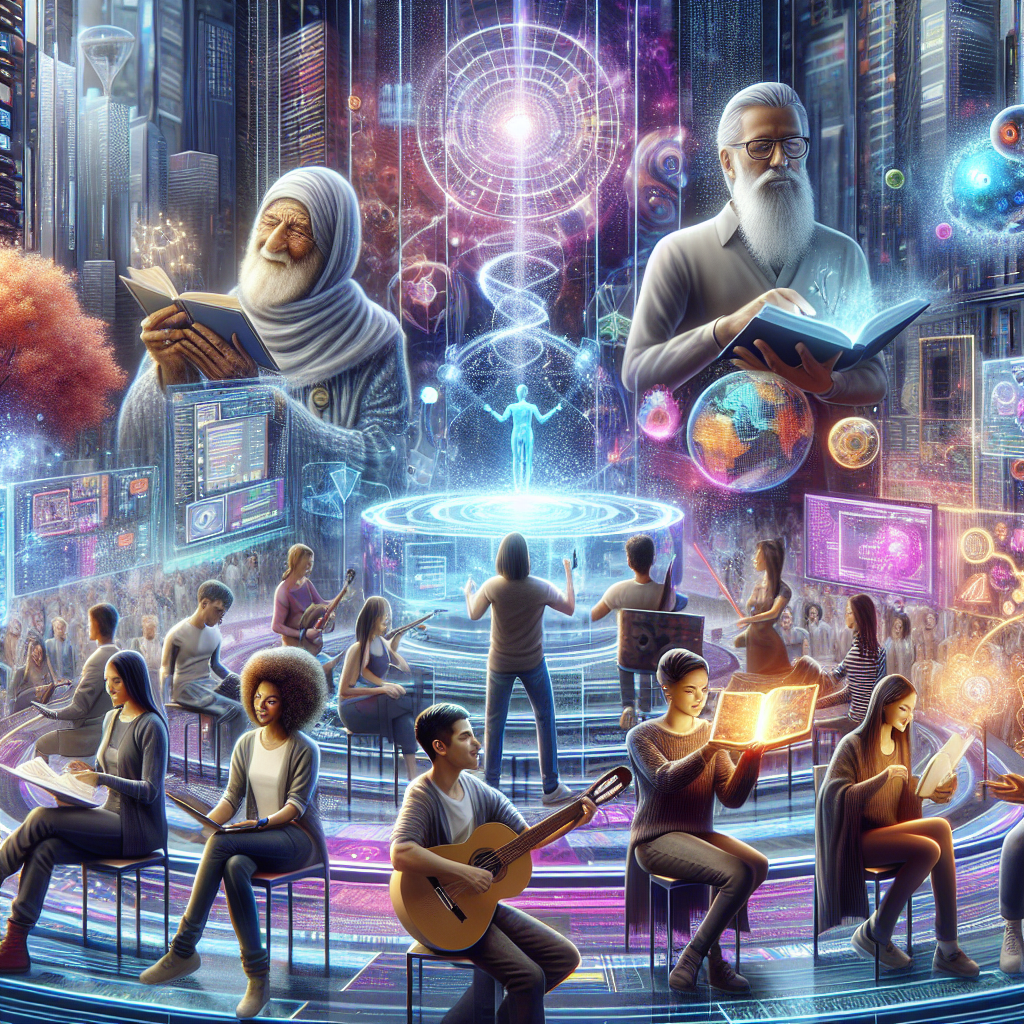
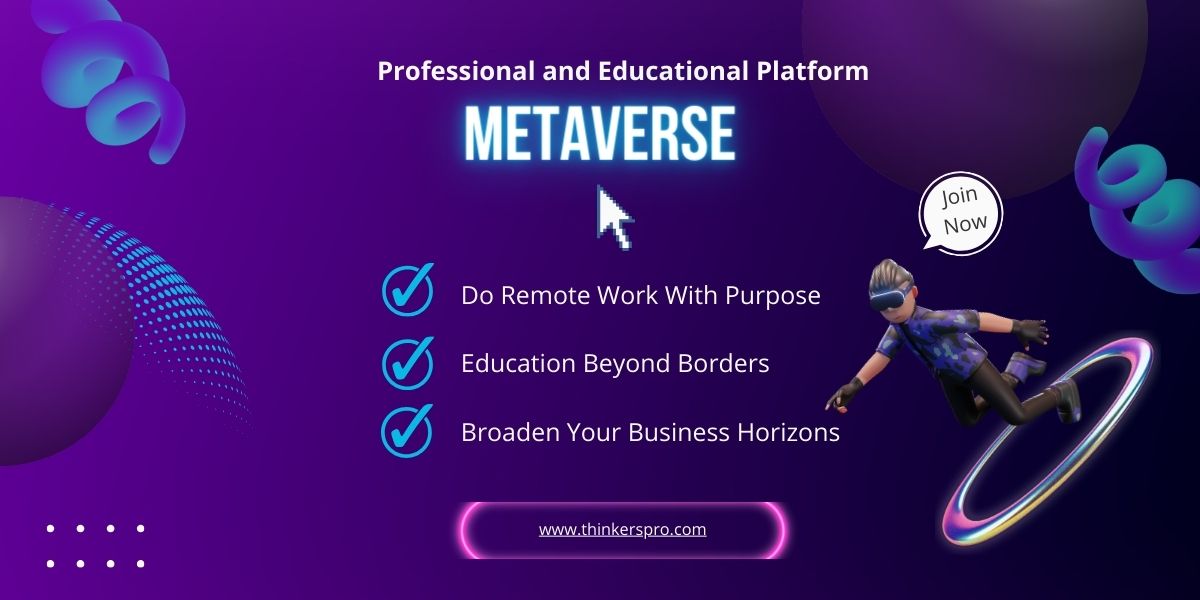
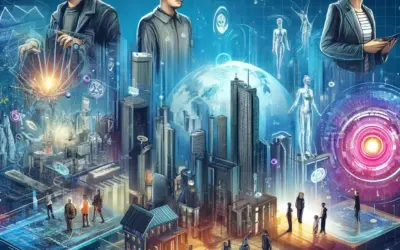
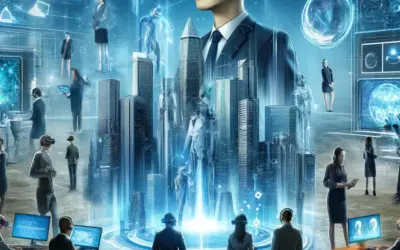
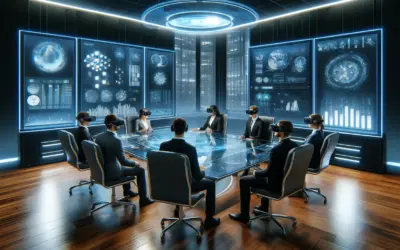
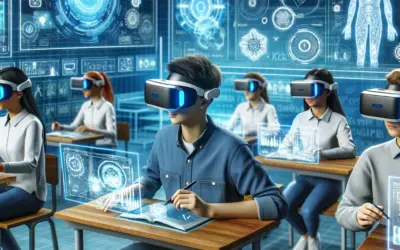
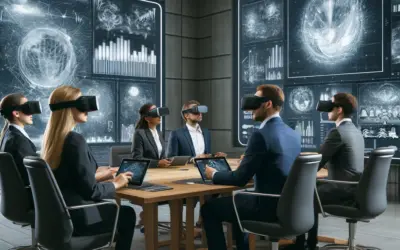
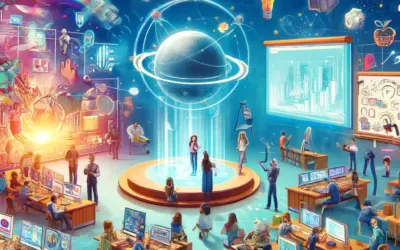
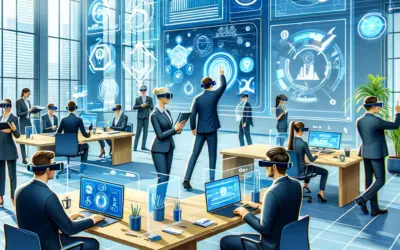

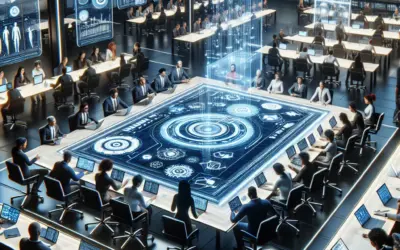
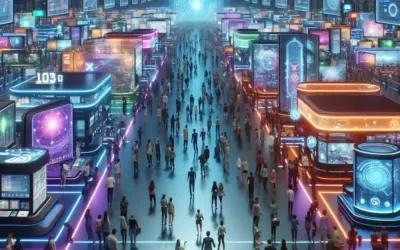
0 comentarios